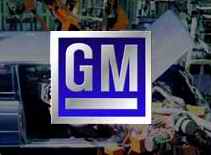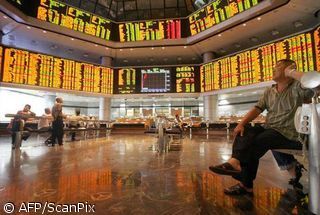Hungary will probably postpone euro adoption from 2008 to 2010 because of high inflation and budget deficits
Published:
26 February 2004 y., Thursday
Hungary will probably postpone euro adoption from 2008 to 2010 because of high inflation and budget deficits, Finance Minister Tibor Draskovics said. The National Bank of Hungary (MNB) has argued for faster adoption, saying it will boost growth.
Draskovics detailed some proposed cuts in state expenditure. Plans include reducing the number of higher civil servants, such as government advisors and state secretaries; the number of state-run foundations; and support for ethnic Hungarians abroad.
January inflation was higher than the Finance Ministry expected, at 6.6% yr/yr and 2.1% month-on-month. It expects annual inflation in 2004 to be near the higher end of its 6%–6.5% target band.
The February budget deficit is anticipated to be about Ft 180 billion (Ђ684 million), boosted by interest payments, Finance Ministry sources said. The estimated February gap would push the two-month figure to Ft 399 billion, or 43% of the full-year target.
Industrial output grew 6.4% in 2003, after a 2.8% increase in 2002, the Central Statistics Office (KSH) said. In December output fell 0.8% month-on-month.
Real wages rose by 9.2% in 2003, as the result of a 14.3% rise in average net wages and twelve-month consumer price inflation of 4.7%, the KSH announced.
The government wants to raise R&D spending to 1.8%–1.9% of GDP by 2006, and to 3% by 2010, Prime Minister Pйter Medgyessy said. Last year the figure was barely above 1%.
The number of operating businesses in Hungary rose 2.6%, to a total of 969,559 in 2003, including not-for-profit and budget-funded businesses, the KSH said.
Šaltinis:
bbj.hu
Copying, publishing, announcing any information from the News.lt portal without written permission of News.lt editorial office is prohibited.
The most popular articles
 The European Commission has approved under EC Treaty state aid rules a Latvian support scheme to stabilise financial markets by providing guarantees to eligible banks to ensure their access to financing.
more »
The European Commission has approved under EC Treaty state aid rules a Latvian support scheme to stabilise financial markets by providing guarantees to eligible banks to ensure their access to financing.
more »
 Gathering in Beijing, China's political elite gather to celebrate three decades of China's economic reform and market liberalisation.
more »
Gathering in Beijing, China's political elite gather to celebrate three decades of China's economic reform and market liberalisation.
more »
 After two days of intense negotiations, European leaders reached agreement on how to achieve the EU’s ambitious climate change goals and endorsed a €200bn plan to revive the flagging EU economy.
more »
After two days of intense negotiations, European leaders reached agreement on how to achieve the EU’s ambitious climate change goals and endorsed a €200bn plan to revive the flagging EU economy.
more »
 Detroit won't get its bailout, as the U.S. Senate blocked the measure to rescue America's big three car makers.
more »
Detroit won't get its bailout, as the U.S. Senate blocked the measure to rescue America's big three car makers.
more »
 The world is facing “an acute food crisis”. That was the verdict of a report adopted by MEPs in the Agriculture Committee on 8 December.
more »
The world is facing “an acute food crisis”. That was the verdict of a report adopted by MEPs in the Agriculture Committee on 8 December.
more »
 The European Commission has agreed a Communication that aims to improve the functioning of the food supply chain in order to lower prices for consumers.
more »
The European Commission has agreed a Communication that aims to improve the functioning of the food supply chain in order to lower prices for consumers.
more »
 The World Bank's 2009 Global Economic Prospects report is projecting world growth will shrink to 0.9 percent next year.
more »
The World Bank's 2009 Global Economic Prospects report is projecting world growth will shrink to 0.9 percent next year.
more »
 Prospects for a federal aid package to help the US auto industry advanced on Monday.
more »
Prospects for a federal aid package to help the US auto industry advanced on Monday.
more »
 A new report from Aite Group LLC explores possible regulatory and legislative responses to the current financial crisis, with particular attention paid to three key topics: consumer lending, risk management and deposit relationships.
more »
A new report from Aite Group LLC explores possible regulatory and legislative responses to the current financial crisis, with particular attention paid to three key topics: consumer lending, risk management and deposit relationships.
more »
 A new report from Mercator Advisory Group's Retail Banking Practice focuses on the ATM and the multifaceted role it plays in the retail banking market.
more »
A new report from Mercator Advisory Group's Retail Banking Practice focuses on the ATM and the multifaceted role it plays in the retail banking market.
more »